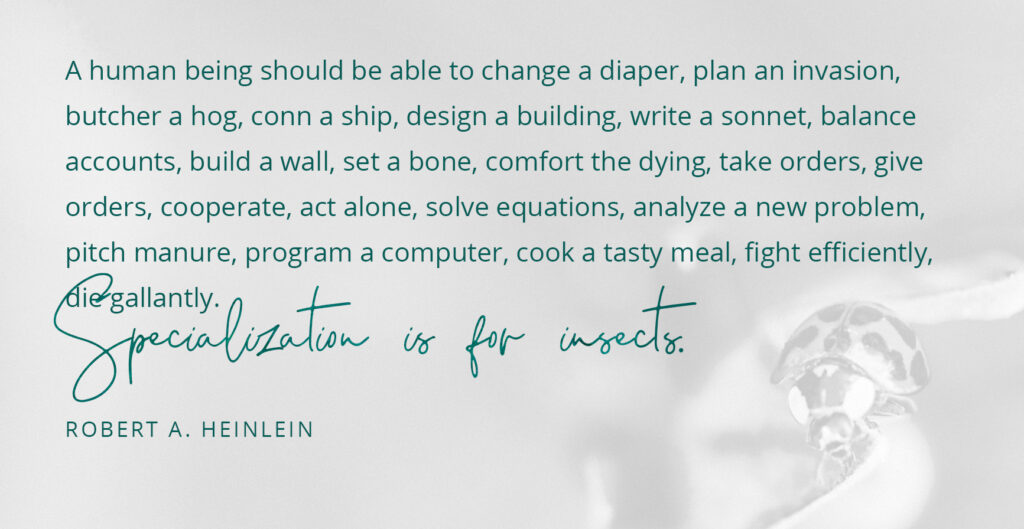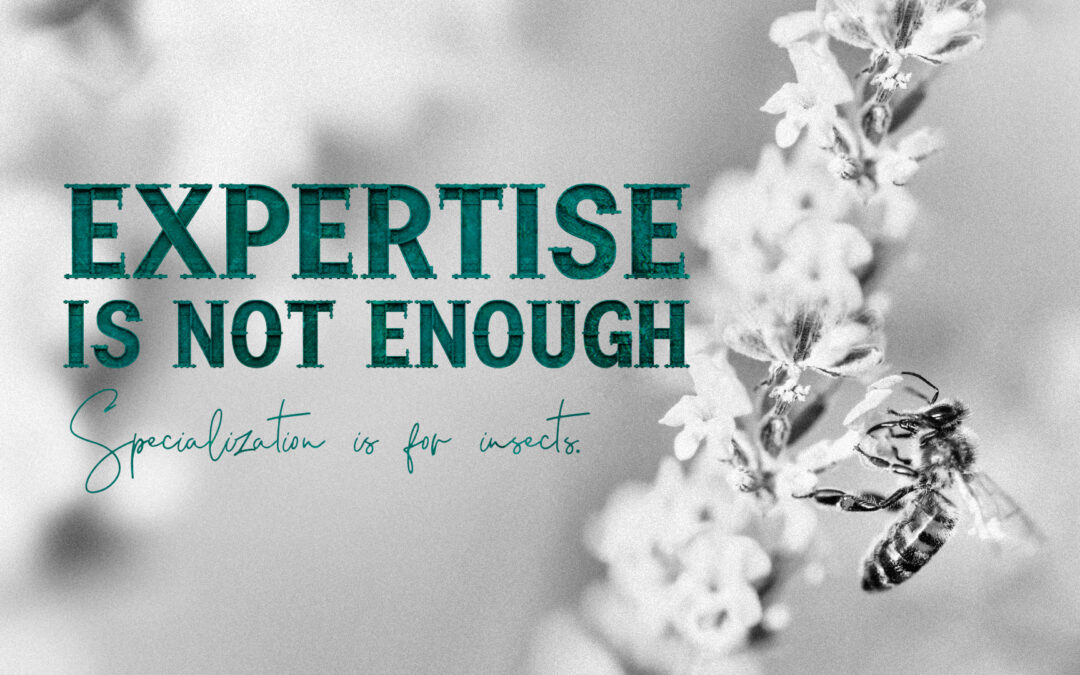Years ago, I pinned a quote by Robert A. Heinlein up on the door of my office while teaching at Cal Poly in San Luis Obispo. It was about the same time that I was writing my book Construction Management Jumpstart (published by Wiley, now in its 3rd edition). The quote goes like this:

However, before pinning it to my door I scratched out “Human Being” and put in “Construction Manager.” Today many construction managers are responsible for managing a whole lot more than just construction, especially under the newer delivery methods such as design-build and its many variations such as Design-Build-Operate-Maintain (DBOM) for example, or Integrated Project Delivery (IPD) or Private, Public Partnerships (P3).
Frankly, the days of depending on single discipline expertise to lead complex projects is over. Don’t get me wrong, we certainly need and value expertise in construction, architecture, and engineering. We depend on these professionals to design and build our projects and provide the technical expertise that we’ve always needed. But those skills alone won’t adequately provide the multi-disciplinary understanding and additional affective capabilities needed to lead an integrated team, optimize an integrated process, and deliver an integrated solution. Projects today are far too complex, and the risks are far too great.
In the past we could often predict what our future issues were going to be by extrapolating from what had happened on projects before. Our predictive logic just told us to do more of what we had done last time, but perhaps a little differently. Well, our future challenges aren’t quite so predictable today—as a matter of fact they are downright unpredictable. We are operating in a VUCA world—volatile, uncertain, complex, and ambiguous. I mean, could you have ever extrapolated from the experiences of 2016 what the challenges of 2020 and 2021 were going to be? So, our tried-and-true extrapolation approach and our usual linear thought patterns and expectations aren’t as useful as they once were.
But letting go of our “expert identities” is no easy task. For some, these identities have become their alter-egos. Many AEC professionals have spent years learning and honing their specialized knowledge and professional skills. They’ve invested thousands of dollars to earn their degrees and graduated from prestigious universities. They have passed licensing and certification exams that “prove” they are experts. And it has real value—but it’s just not enough. Not anymore.
So, what’s needed in addition to expertise?
Well for one we need to develop some adaptive intelligence to go along with the static intelligence that most experts have in abundance. Static intelligence is a dependence on those predetermined “discipline owned” data sources that we have used again and again, that are rarely updated. Static intelligence has us only share information and sources with the same siloed internal partners that we have always shared with. In other words, static intelligence has us working from the past instead of accessing new information and resources informed by the future. In contrast, those AEC professionals who have adaptive intelligence are those who can adjust to an ever-changing and uncertain environment. They are continuously learning and embodying a growth mindset. Instead of engaging challenges from their usual perspective, they start by acknowledging that maybe they aren’t the expert they thought they were—at least not to the extent they need to be. They can come from a place of “not knowing” instead of “knowing.” Professionals with this adaptive intelligence understand how to collaboratively source the information and new knowledge needed to “discover” solutions that would have never come to them from their usual place of “having the answer already.”
Today’s challenges require abilities and skills that go beyond expertise but like insects, we continue to rely too much on our specializations to address these challenges. Could it be that this reliance is partly what is keeping us stuck and unable to move the needle when it comes to our chronic low productivity, critical workforce shortages, continued failure to embrace technology, and many other shortcomings? We are indeed an industry filled with incredibly well-educated professionals, but perhaps we are lacking the skills and adaptive intelligence to tap into the collective genius that resides among us. We need to stop depending solely on what we already know and start to embrace the power that exists beyond our expertise.
______________________________________________________________________________
In the next several months Barbara Jackson will identify and describe in her blogs and posts many of the skills and intelligences beyond discipline expertise that she believes are necessary to become an Integrated Project Leader.


Recent Comments